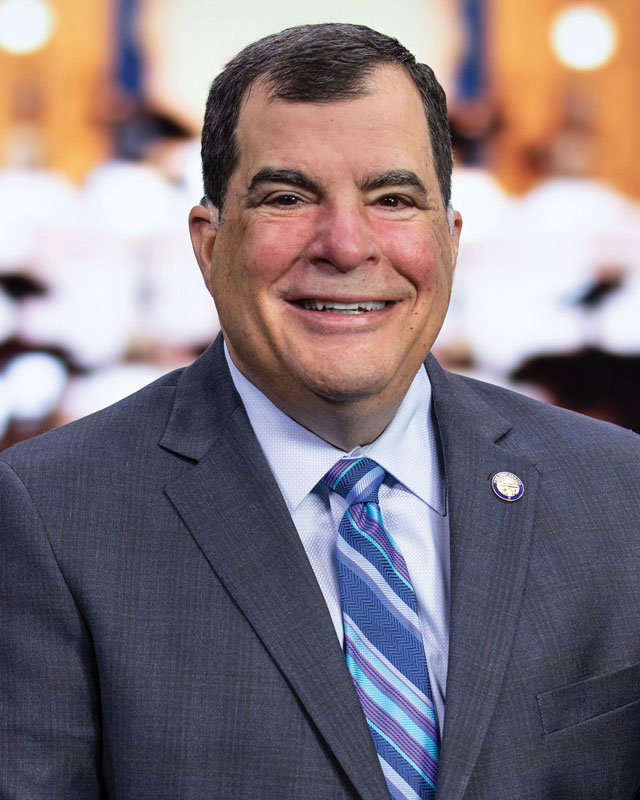Check our math, but 50 percent of the onus for driving public-private partnerships to spur economic growth falls on our elected officials. Residents and businesses interact with what can be an overlapping jumble of jurisdictions when it comes to starting or expanding companies—from state legislators down to county officials to local villages and townships. Public officials are aware of those challenges, and many say they’re trying to simplify taxes, rules, and regulations.
Since this issue of Realm is focused on Butler, Clermont, and Warren counties, we reached out to elected officials in various levels of government there to comment on their work and their goals. We invited several state senators and representatives, county commissioners in all three counties, and elected officials in Batavia, Hamilton, and Mason to answer questions about their legislative priorities and their efforts to work up and down the jurisdiction ladder and across the aisle to improve conditions for their constituents.
Participants in this discussion are Ohio State Representative Adam Mathews, who serves House District 56 (Lebanon, Mason); Shannon Jones, President of the Warren County Board of County Commissioners; TC Rogers, President of the Butler County Board of County Commissioners; and Ohio State Senator George Lang, who serves Senate District 4 (Middletown, Hamilton, Oxford). Their responses have been lightly edited for length and clarity.
WHAT ARE YOUR TOP LEGISLATIVE PRIORITIES FOR THE NEXT YEAR OR TWO IN YOUR JURISDICTION?

State Rep. Adam Mathews: I will continue to work to promote Southwest Ohio and the pro-family, pro-business policies that have enabled us to grow. I have been working to ensure the Western & Southern Open tennis tournament remains here and submitted House Bill 1 to lower our income taxes, resulting in $2.2 billion in savings for Ohio taxpayers. I’ll continue along these lines for the rest of the legislative session.
Warren County Commissioner Shannon Jones: Warren County Commissioners are committed to fiscal discipline while delivering the highest quality basic services that our residents and businesses have come to expect at the lowest possible cost, without raising property taxes. We continue to look for ways to provide county taxpayers with property tax relief, as we did with our property tax holiday in 2022, returning nearly $50 million in collected property taxes to taxpayers.
Our focus in the coming years will be to continue our strong track record of fiscal restraint that’s resulted in zero public debt, a Aaa bond rating, increased interest by businesses to locate in the county, and increased investment in our No. 1 industry, travel and tourism, including sports tourism, that brings millions of visitors into the county from around the region, the country, and the world generating nearly $1.45 billion in economic activity. Keeping the quality of our services high and our property taxes low by expanding and diversifying the tax base remain our legislative priorities.
Butler County Commissioner TC Rogers: We will continue to encourage our legislators to draft property tax proposals that demonstrate three-year home value trends instead of a one-year outlier sampling. We’re also asking state government members to stabilize Medicaid qualifications to give local office holders better opportunity to establish their budget needs.

State Sen. George Lang: The only area/topic I work on is how to make Ohio the most business-friendly state in the U.S. To accomplish this, I have four key issues of focus: smaller government, reducing/reforming regulations, tax reform, and workforce development. By putting business first, we can raise the tide for all Ohioans and bolster the prosperity of our state.
With that said, one main priority I have for the near future includes reigning in a harmful Department of Taxation practice related to property tax valuation calculations that harm businesses as well as individuals on fixed incomes. Another priority is to make sure that insurance companies and construction companies are not being frivolously taken advantage of in costly and overly broad asbestos lawsuits; we want to hold bad actors responsible, but we also want to eliminate the financial burden of litigation for companies that should never have been parties to a lawsuit to begin with.
Finally, I am also prioritizing legislation that would reimburse sales tax collection fees to retail vendors who utilize credit card transaction technology.
WHAT ARE YOUR LONGER-TERM GROWTH AND DEVELOPMENT GOALS FOR YOUR JURISDICTION OVER THE COMING 5-10 YEARS?
Mathews: I want Ohio to be a place where my kids can grow up to be virtuous and have the economic opportunity to thrive. As Warren County develops, we must strengthen our engineering and civic infrastructure as well as provide an appropriate environment for family formation.

Jones: Warren County is the third fastest growing county in Ohio, and project announcements throughout the state, such as Intel and Honda, will increase demands on basic infrastructure. Much of the infrastructure in the northwest portion of the county remains underdeveloped, yet its proximity to I-71 makes it attractive to those seeking quality housing options in communities with good schools and amenities. We have prioritized strategic infrastructure investments to plan for the demands of today and for years to come.
• Warren County Infrastructure Bank: Several years ago county commissioners created a “savings account” for county infrastructure projects and have made it a priority to build the fund each year; it now totals nearly $47 million. Working with the county engineer, projects are prioritized and various funding streams are leveraged to accelerate the completion of priority projects and plan for additional growth.
• Public-Private Broadband Investment: We invested $5 million of one-time American Rescue Plan Act dollars, leveraging $100 million in private investment in the county to ensure every business and resident has access to high fiber broadband. Over the next three years, 100 percent of the county—roughly 57,000 doors—will have access to fiber-based broadband, with priority given to the most underserved portions of the county during the project buildout. Ensuring the successful implementation of this project over the next few years will position the county to be a beneficiary of high-tech job creation in the region.
• Strategic Master Plan for Warren County Facilities: We are actively addressing capacity challenges and building inefficiencies in all county-owned facilities while maintaining our commitment to taxpayers to keep property taxes low and to live within our means. With a $4.5 million renovation to the county’s Juvenile and Probate Court in 2019 and construction of a new $54-million jail and Sheriff’s Office in 2021, saving county taxpayers more than $30 million in debt servicing costs in the process, commissioners continue to upgrade and replace county facilities to account for the increasing demands in a growing county.

• Investing in State-of-the-Art Water and Sewer Systems: We help manage growth by protecting our water and sewer service boundaries while investing in infrastructure to support existing and projected needs. Two new water softening plants have come online in 2023, with additional investments being made to increase the level of service for customers. More investment is necessary to ensure high quality services are maintained, the newest EPA standards are met, and growth is managed appropriately.
Rogers: We want to increase Butler County efforts to work with Miami University and Butler Tech to provide resources that incentivize student graduates to remain in Butler County to live, work, and play. In addition, we want to showcase our natural location advantages with infrastructure enhancements to attract a new level of business coming to Southwest Ohio.
Lang: Some of my longer term goals include eliminating the Commercial Activities Tax (CAT) altogether, eliminating the state personal income tax, and reforming the unemployment compensation system. All three of these goals would allow businesses to be more competitive, allow Ohioans to keep more of their own money in their pockets, and help alleviate a workforce shortage perpetuated by individuals who unduly take advantage of government benefits.

HOW CAN OVERLAPPING JURISDICTIONS (CITY, COUNTY, STATE AND FEDERAL) AND THE TWO POLITICAL PARTIES DO A BETTER JOB OF WORKING TOGETHER TO ACCOMPLISH THESE AND OTHER GOALS FOR CITIZENS?
Mathews: Open and honest communication is necessary for us all to work to accomplish the people’s work. I operate under the principles of no surprises and no embarrassing people, and this standard allows those of all levels and parties to respect each other’s dignity. It doesn’t matter who gets the credit as long as we all achieve for our constituents.
Jones: Warren County leaders maintain excellent communication with all political subdivisions within the county to uncover and understand the unique challenges facing individual communities while remaining steadfast advocates for the needs of the county as a whole. We prioritize the relationships across both the public and private sectors and engage our elected official partners and other stakeholders in our decision making, regardless of their political affiliation, title, or geography. We’re proud of the fact that county commissioners have unparalleled working relationships with our partners, and we know that our constituents benefit from this unique governing culture. The region could take the same approach by taking the time to get to know each other and listening to the experiences of the various communities before seeking solutions.
Rogers: Encourage conversations with neighboring jurisdictions to determine four or five initiatives that would most benefit their constituents’ everyday lives and their families. Accomplishing that would establish a basis for a model of communication that could tackle more unique problems that face our population.
Lang: Along with some of my already stated long-term goals, I would like the overlapping jurisdictions throughout the state to find a way to harmonize and simplify our taxing schemes. According to a recent economic competitiveness study conducted on more than 200 differing variables throughout the state, Ohio is the single worst state in the U.S. for individual taxing jurisdictions. This cost and complexity is a turnoff for business development, and I would like to see the jurisdictions work on resolving that structure.
As far as how the two political parties can do better at working together, I think it takes listening. A good example of this is the Ohio Business First Caucus, of which I am a co-chair. It’s the largest political caucus in Ohio, it’s bicameral, and it’s bipartisan. We have private and public sector entities with differing specialties, backgrounds, and political beliefs present before lawmakers on how Ohio can continue down the path of being more business friendly.


